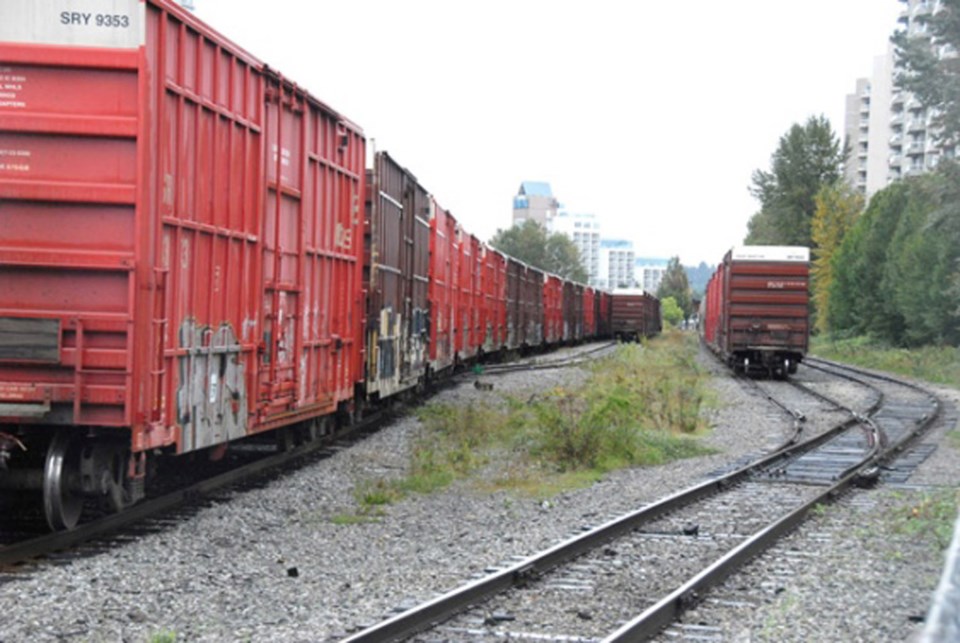A demand for equipment won’t derail New Westminster’s plans for whistle cessation, but it could mean delays.
The City of New Westminster has been working on plans to end the need for train whistles at crossings throughout the city.
“The type of signalization that is required, some of it is not just the standard signalization equipment,” said Coun. Chuck Puchmayr. “There’s a huge back order, apparently all over North America.”
Despite the delays, Puchmayr is confident the city’s plan to put an end to train whistles is on track.
“We have never been further along. We are going to implement it. Council has agreed that all crossings should be whistle-free, and that’s our goal,” he said. “As complicated as some of them will be, we are going to have to have our experts come back and find a way of making it happen, rather than finding a way of not making it happen.”
On July 7, city council gave three readings to the New Westminster train whistle cessation bylaw, which relates to at-grade crossings owned and operated by Southern Railway B.C. Ltd. Subject to the completion of safety enhancements that have been identified and endorsement by Transport Canada, council supports the elimination of train whistles at Begbie Street and Front Street.
Already, whistles have ceased at the crossing at Fourth Street.
“We have closed that gate,” Puchmayr said. “There is no more whistling there.”
Puchmayr said the city is “almost there” with whistle cessation at crossings at Begbie and Front street crossings, as well as Trapp Road.
According to the a staff report, the designs for safety enhancements for the downtown crossing have been completed in accordance with safety audits that have been approved by the railway companies. The city expects the improvements to be built this summer and fall.
Jim Lowrie, the city’s director of engineering, said the city is first dealing with crossings in the downtown and Queensborough neighbourhoods and will target Sapperton next.
Southern Railway, which owns and operates all of the crossings in Queensborough and the West End, has reached an agreement with the city for upgrades at these crossings, which will pave the way for whistle cessation in those areas as well.
“It should be noted that the improvements at two crossings can be completed very quickly, with a third on Quayside Drive possibly by the year end,” stated a staff report. “The other crossings would be completed in 2015.”
Although safety audits have been completed at the three major crossings in Sapperton, staff reports that “significant issues” have to be addressed before whistles can be stopped at Braid Street and Spruce Street crossings. Whistle cessation, however, will be able to take place at the Cumberland Street crossing.
The City of New Westminster’s 2014 capital plan includes $800,000 for crossing improvements. Southern Rail is also contributing funds towards whistle cessation on its crossings.
Mayor Wayne Wright said the issue of train noise affects residents from one end of the city to the other.
Even though New Westminster is moving to eliminate train whistles, Puchmayr noted that residents will still be able to hear train whistles being sounded across the river in Surrey.
“There’s still going to be distant train whistles,” he said.
Puchmayr is looking forward to the day when train whistles are no longer needed at crossings in New Westminster.
“It’s been 100 years,” he said of trains passing through the city. “There is finally a light at the end of the tunnel. It’s a train and it’s not making noise – eventually it won’t be making noise.”



